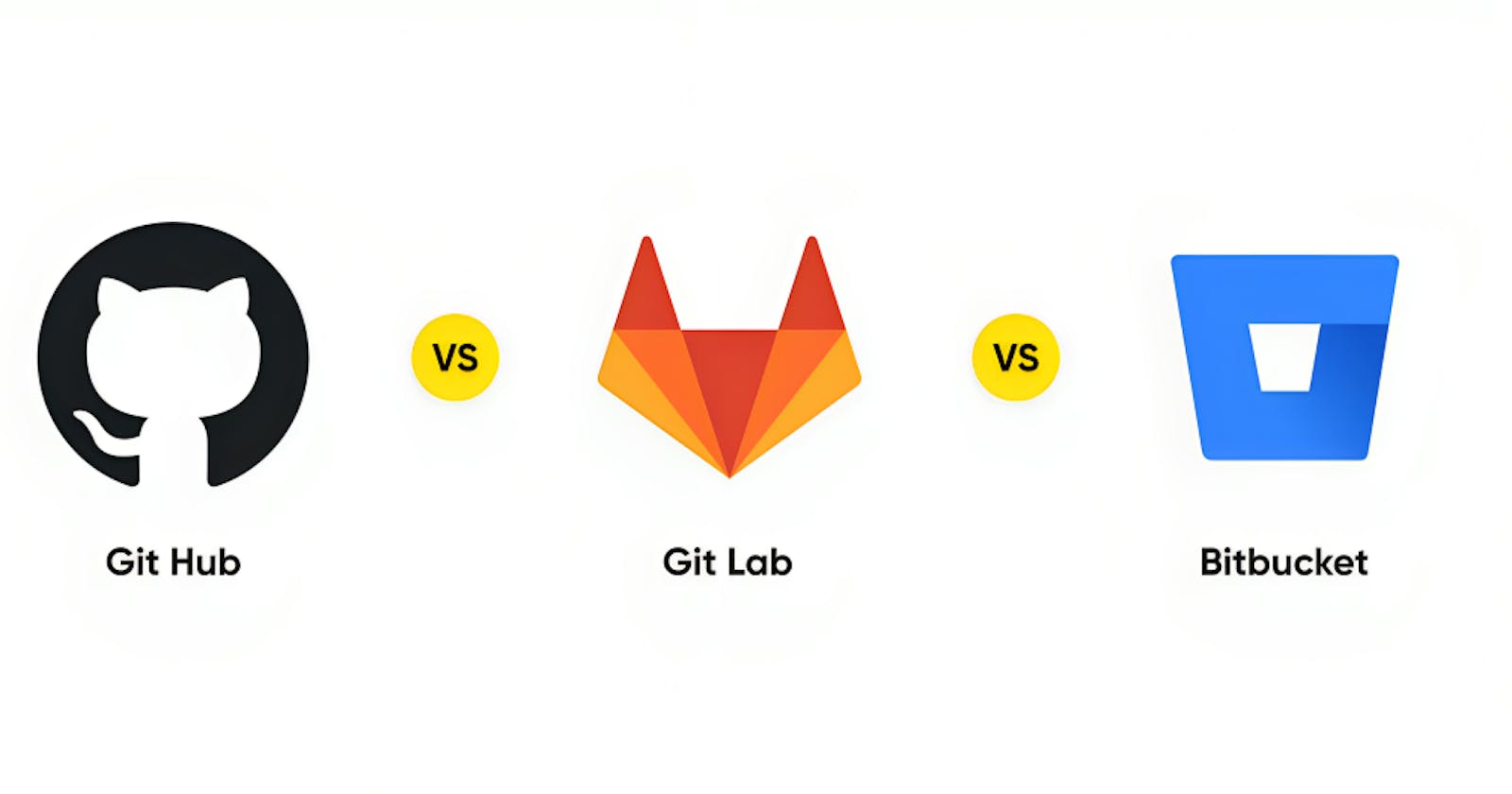GitHub, GitLab, and Bitbucket are three of the most popular platforms for hosting and collaborating on software development projects. Each platform offers a unique set of features and strengths, catering to different needs and preferences in the development community. Here's a comparison to help you understand the differences:
GitHub:
Owned by: Microsoft.
Popularity: Most popular and widely used, with a large community of developers.
Interface: Known for its user-friendly interface.
Features: Offers features like issue tracking, project management, code review, and GitHub Actions for CI/CD (Continuous Integration/Continuous Deployment).
Integration: Supports numerous integrations and has a robust ecosystem.
Pricing: Free for public repositories; private repositories are free for individuals and small teams, with paid plans for larger teams and advanced features.
Unique Aspect: Strong open-source community support and extensive documentation.
GitLab:
Owned by: GitLab Inc.
Popularity: Popular among enterprises and those seeking a fully integrated DevOps lifecycle.
Interface: Comprehensive, but can be more complex due to its extensive features.
Features: Offers a complete DevOps lifecycle in a single application, including issue tracking, CI/CD, and more.
Integration: Provides powerful integration capabilities, though slightly less extensive than GitHub's.
Pricing: Free for individuals and smaller teams with a limited feature set; offers various paid plans for larger teams and additional features.
Unique Aspect: Self-hosting option available, allowing full control over the infrastructure.
Bitbucket:
Owned by: Atlassian.
Popularity: Particularly favored by professional teams using other Atlassian products like Jira and Trello.
Interface: Clean and integrated well with other Atlassian products.
Features: Strong focus on code collaboration, with features like pull requests, code reviews, and Bitbucket Pipelines for CI/CD.
Integration: Best integration with Atlassian’s suite (Jira, Confluence, Trello) and decent third-party integration.
Pricing: Free for small teams, with a focus on private repositories; paid plans for larger teams and additional features.
Unique Aspect: Often chosen for its seamless integration with other Atlassian tools.
Key Differences:
Community and Ecosystem: GitHub has the largest community, making it a go-to for open-source projects. GitLab and Bitbucket have strong communities but are more enterprise-focused.
Integrated DevOps: GitLab offers a more integrated approach to the entire software development lifecycle.
Atlassian Ecosystem: Bitbucket is the preferred choice for teams already invested in Atlassian’s suite of tools.
Self-hosting: GitLab provides more robust self-hosting options than GitHub and Bitbucket.
Choosing the Right Platform ✅:
The choice between GitHub, GitLab, and Bitbucket depends on your specific needs:
If you value a large community and extensive third-party integrations, GitHub is ideal.
For an all-in-one DevOps solution, consider GitLab.
If your workflow is heavily integrated with Atlassian's products, Bitbucket may be the best fit.
Subcribe for more informative articles related to DevOps.😀😀
